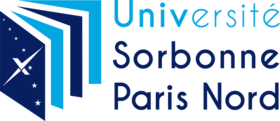The Consortium
Coordinator

Institut Pasteur (IP) has been at the forefront of the battle against infectious diseases and vaccine development for over a century, with 10 Nobel Prizes. IP provides the infrastructure support as well as co-financing of personnel (management and scientific levels) and running costs for Milieu Intérieur. Specifically, the Center for Translational Science will continue to provide a dedicated MI laboratory, with access to innovative core facilities for immunological phenotyping, and housing of the MI sample biorepository and data warehouse. In addition, the Technology Transfer department will continue to support the translation and commercialization of the results. MI will continue to lead and support many IP teaching activities and the funding of Masters, PhD students and post-doctoral trainees.
National/French Partners

INSERM is a public organization operating under the authority of the Ministries of Health and Research dedicated to biomedical research and human health. INSERM will participate with 9 research units, in line with its strategic plan to make genomic medicine a priority area of research.

CNRS - The French National Centre for Scientific Research is among the world's leading research institutions. Internationally recognised for the excellence of its scientific
research, the CNRS is a reference in the world of research and development, as well as for the general public. 4 CNRS units, which
fits perfectly its mission of interdisciplinary and integrative biological research are involved in the Milieu Intérieur project .

Institut Curie is a leading player in the fight against cancer through a combination of a research centre in oncology and a state-of-the-art hospital that treat all types of cancer. They contribute their expertise in immuno-phenotyping and immuno-oncology to the project.

Université Sorbonne Paris-Nord is involved in Milieu Intérieur through the team EREN (Equipe de Recherche en Epidémiologie Nutritionnelle) led by M. Touvier, contributing expertise from NutriNet-Santé to better understand the impact of nutrition on immune responses.

Université de Paris is involved in Milieu Intérieur through the UMRS 1160 “Microenvironment, lymphocyte development and homing” led by A. Toubert, who contributes their expertise on thymic function.

Institut Imagine is a leading research and healthcare institute for the study of genetic diseases. The labs of L. Abel, A. Rausell, N. Cerf- Bensussan, F. Rieux-Laucat and M. Ménager are involved in Milieu Intérieur.
International Partners
EPFL (Ecole Polytechnique Fédérale de Lausanne) is one of the two Swiss Federal Institutes of Technology. It has three missions: education, research and technology transfer at the highest international level. J. Fellay’s team at EPFL is integrally involved in the project.

Karolinska Institutet is one of the world’s largest medical universities and through close collaboration with the Karolinska University hospital has unique access to clinical samples. The teams of P. Brodin and G. Karlsson Hedestam from Karolinska are involved in the Milieu Intérieur project.

Trinity College Dublin (TCD) is Ireland’s highest ranked university. It is home to 17,000
undergraduate and postgraduate students. “The Irish Longitudinal study on Ageing” (TILDA) and the teams of R.A. Kenny, N. Bourke, and C. O’Farrelly are part of Milieu Intérieur.
Industrial Partner

Institut Roche is an accelerator of scientific and biomedical innovation, with a collaborative and multidisciplinary structure that facilitates scientific partnerships between academic institutes and research centers of the Roche group.